It’s Not Over
Standing Rock was never just about the pipeline. It’s about an existential fight against the corporate interests who would sacrifice people and the planet on the altar of short-term gain.
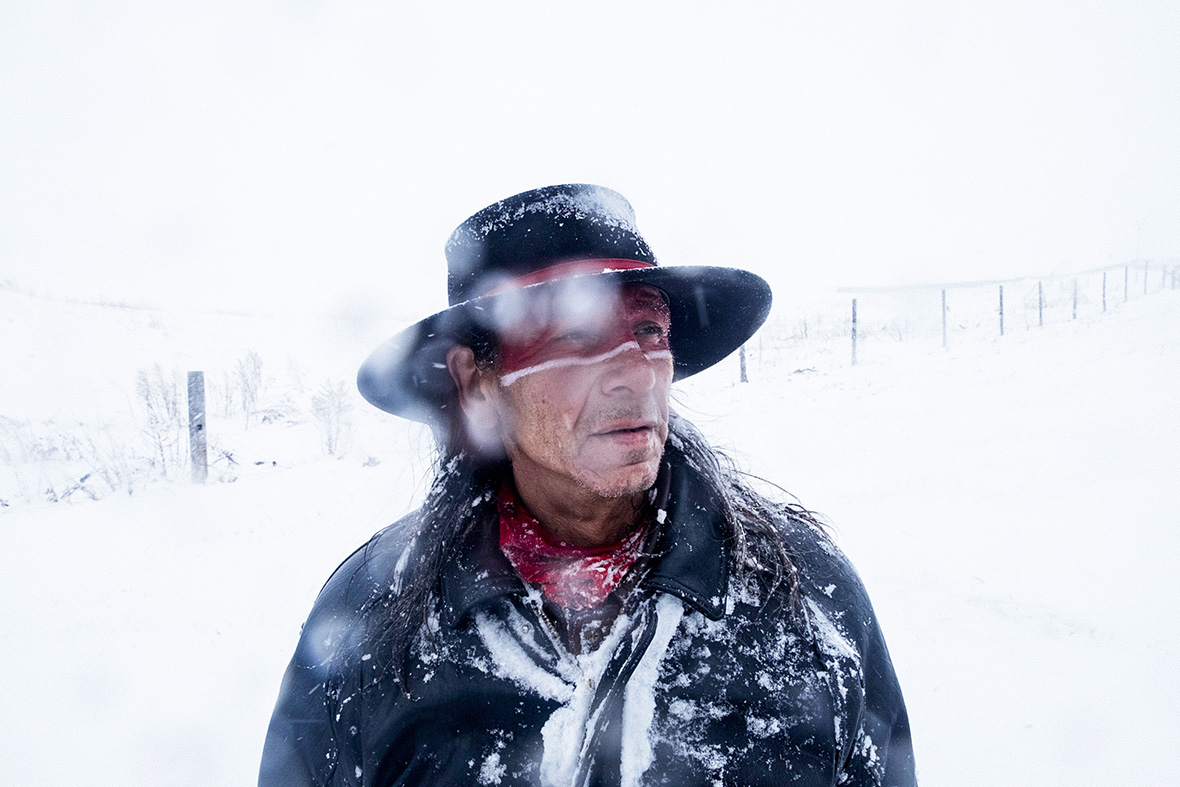
Christian Hansen
The images below were taken by Christian Hansen at the Oceti Sakowin camp at Standing Rock in early December.
There were fireworks the night the U.S. Army Corps of Engineers announced it would not grant the easement allowing the completion of the Dakota Access Pipeline—low, bright explosions lighting up the makeshift civilization on the Standing Rock Sioux reservation. And then the protesters got back to work.
The Army Corps’ unexpected announcement on Dec. 4 has largely been hailed as a victory for the people who’ve spent months trying to block final construction of the pipeline. But at the camp, where members of more than 700 tribes have gathered with the Standing Rock Sioux—and have stayed, despite frigid temperatures—the news was received a bit more cautiously. Even when David Archambault II, chairman of the Standing Rock Sioux tribe, told protesters it was time to go home and be with their families for the winter, many were reluctant. They know this decision is not conclusive—it’s more of a punt so the Army Corps can “explore alternate routes” and consider an Environmental Impact Statement “with full public input and analysis.” And the whole thing could be reversed by President-elect Donald Trump once he takes office.
We don’t know. But whatever happens next, the ideals that catalyzed the Standing Rock protest are not going away. The people fighting for them are in it for the long haul, because in a broader sense that’s what the protest was about—advocating for the long view amid the triumphal short-termism of our current political culture. The protesters in Standing Rock are eminently aware that this “victory” is not the end but rather another twist in a longer fight. And while others are lamenting how the Army Corps’ decision will make the process drag on, for the protesters, that’s OK. They’re committed to ideals that have a longer shelf life than the market cycle, or even a presidential term. “It’s more than this pipeline, on this land, at this time,” Daphne Singingtree, a protester who has spent weeks at Standing Rock and intends to stay, told NPR after the Army Corps’ decision was announced. “I see this movement continuing on.”
Pipeline supporters, by contrast, have short-term goals. They want to finish the pipeline, start pumping oil, and start making money. Their arguments for why it should go through rely on short-term considerations: The pipeline is mostly complete, and right now we’re shipping oil on trains, which is more dangerous. Plus, the government is about to open a gleaming new water-treatment plant, so, really, the concern that a pipeline break could contaminate their drinking water is actually unnecessary. Case closed.
These arguments hold up so long as you think about them only within the narrow framework of the short term. As soon as you consider the long term, they fall apart. The Standing Rock Sioux are not just interested in where they’re going to get their water right now. They’re worried about where they’re going to get their water forever. “As American citizens, we all have a responsibility to speak for a vision of the future that is safe and productive for our grandchildren,” Archambault wrote in the New York Times in August.
The long term is what brought the environmentalists there, too, even though the actual decisions made at Standing Rock so far have been more fundamentally about land rights than about climate change. (Pollution provides a bridge between the two issues.) Archambault connected these dots on Minnesota Public Radio on Wednesday: “If, for the first time, this nation can listen and hear us, they’ll understand that this is about climate change,” he said. “We all have to take a good look at ourselves and say, ‘Are we dependent on fossil fuels?’ If we say yes, we’re creating the demand for the Dakota Access pipeline and for future pipelines,” both of which threaten land and water.
These concerns intermingled at Standing Rock, and one lasting prize of the protests might be the alliances they produced, a sort of coalition of the long term: Sioux Indians worried about their drinking water. Environmental activists concerned about the viability of the planet and the way our fossil-fuel dependence gets consecrated in our infrastructure. Veterans showing up out of a wish to protect the Constitution. Black Lives Matter activists who saw their own long cause in the police brutality visited upon Native Americans at Standing Rock and across the country. Mainline protestants who want to acknowledge the injustices tribes have suffered in the past and wish to support them in this “spiritual battle” for their right to their sacred grounds.
Standing Rock attracted the politically engaged, but also the politically disaffected. Some there had grown so disillusioned that Trump’s upset win barely registered when the news reached them the morning after the election. Still, they were camping out in the Great Plains in the middle of winter for a cause. Much has been said about the Americans whose grievances have not been recognized or addressed by our current politics. Some took their dissatisfaction to the ballot box. Others took it to Standing Rock. And many there do not trust the permanence of the Army Corps’ decision, making them unwilling to leave. Veterans continued arriving even after the announcement. “I celebrate with caution,” Tara Houska, a member of the Couchiching First Nation, told the Guardian, when explaining her intent to stay. “We know that Trump is coming and with that, we know our fight will continue.”
The man now preparing to take office embodies the antithesis of the protesters’ vision. Trump is pro-pipeline generally, and he stands to gain financially from this one specifically. He will be the only world leader to deny the reality of climate change and the first president to have been elected without prior government experience. He is the short-termer–in-chief, having attained the office in part by running on his corporate experience, his supposed ability to get results. That’s what the protesters are up against: the elevation of the American belief that government ought to run like a corporation, one that prioritizes short-term results over long-term progress. On Wednesday, Trump named a climate change denialist to head his EPA. Oil executive Rex Tillerson is the leading front-runner for secretary of state. Short-termism is running the country. Standing Rock is not going away.
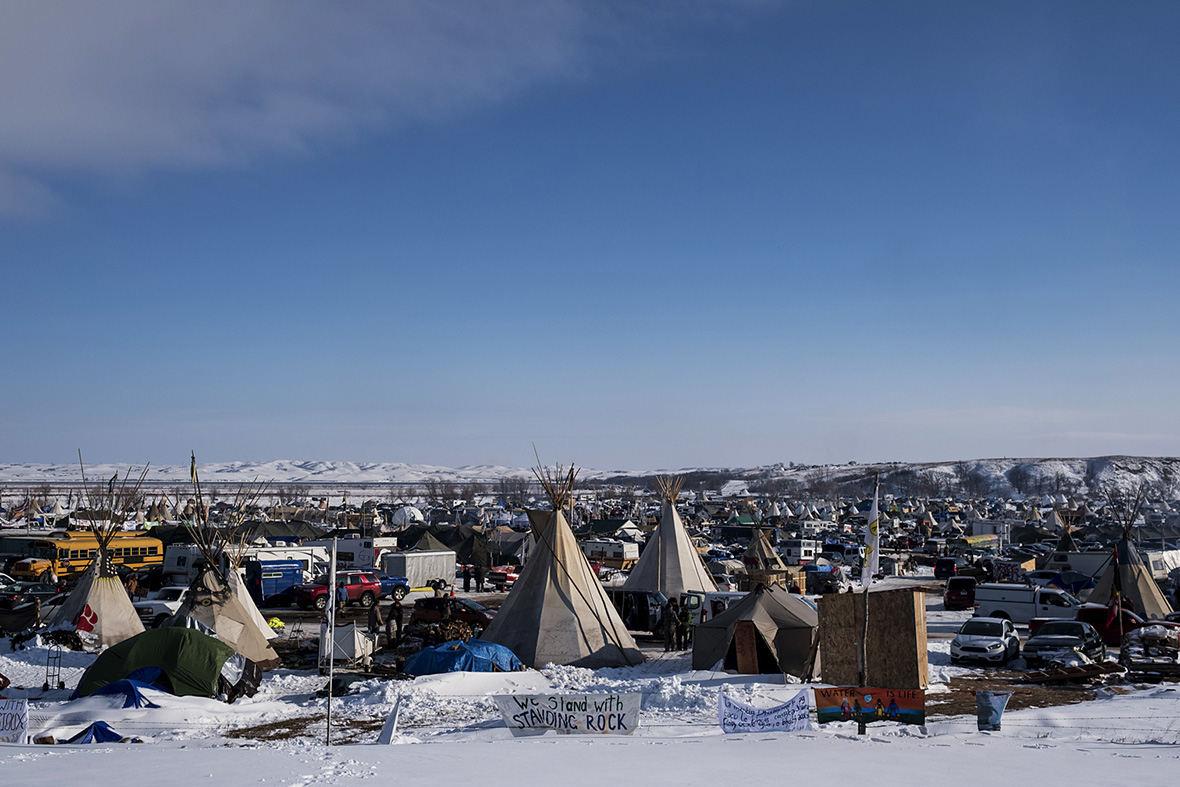
Christian Hansen
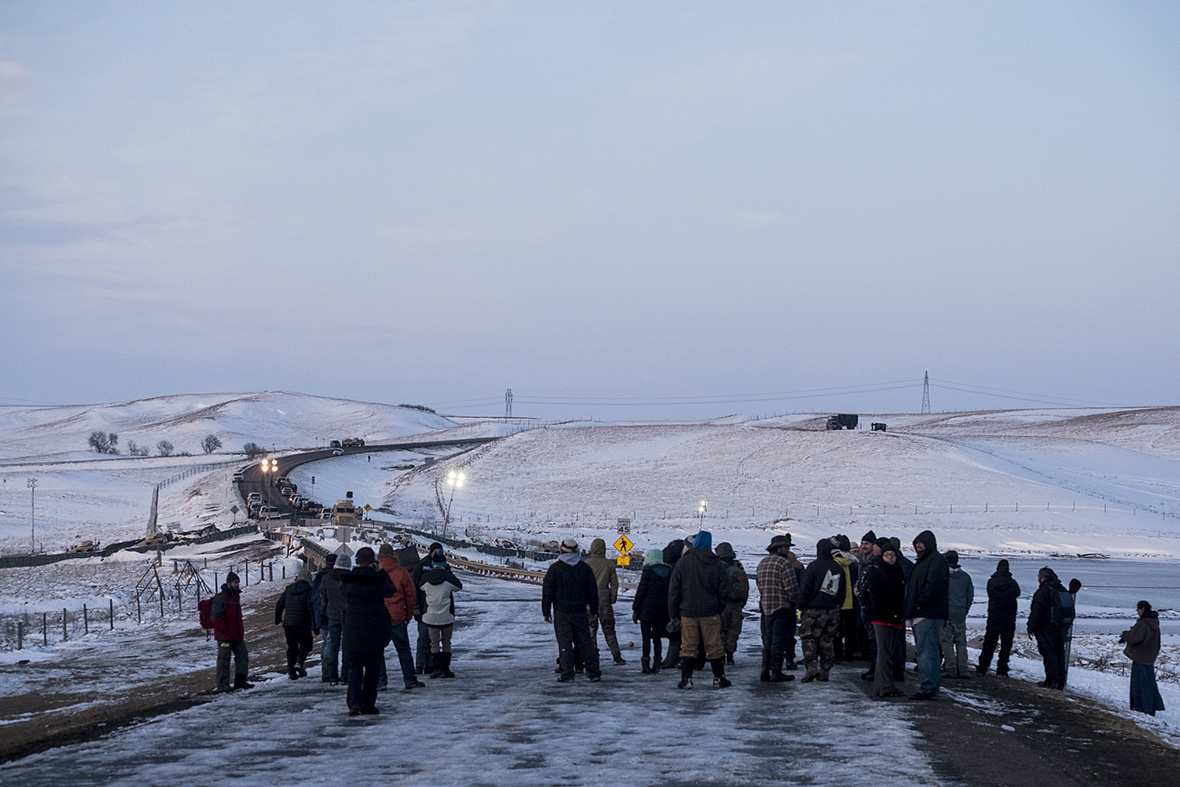
Christian Hansen

Christian Hansen

Christian Hansen
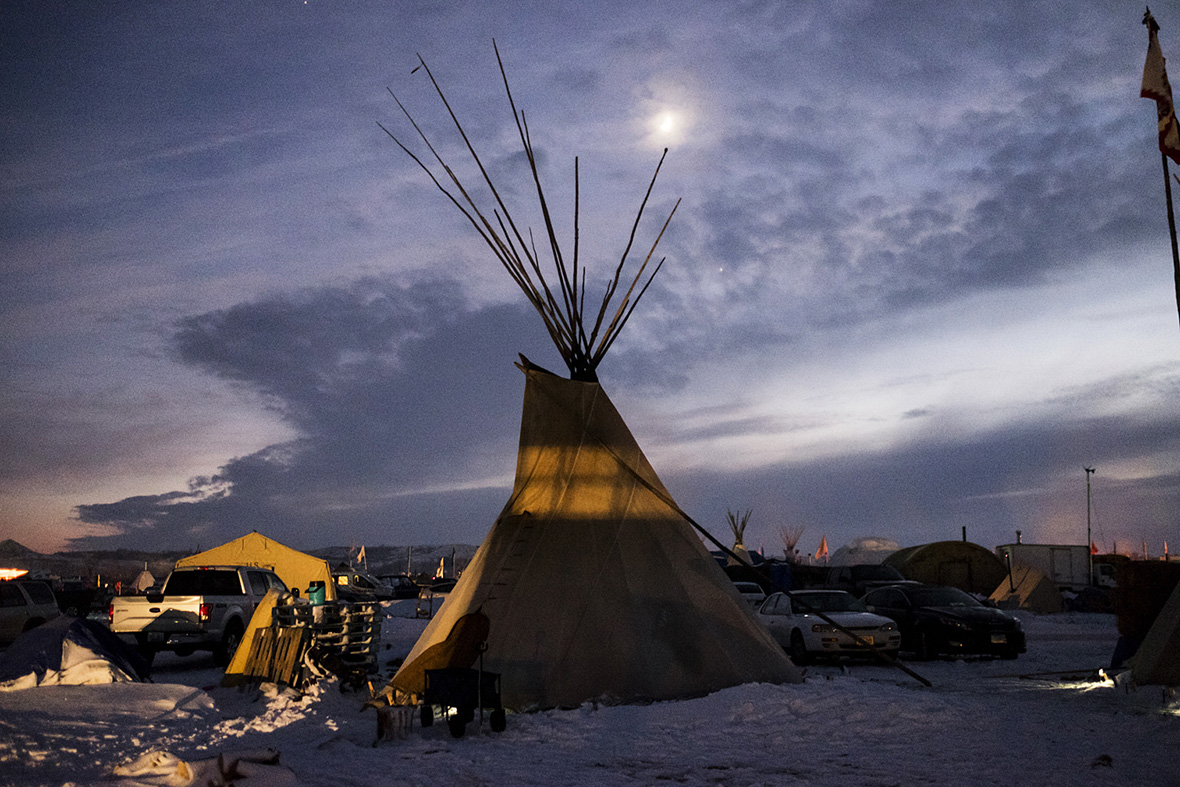
Christian Hansen
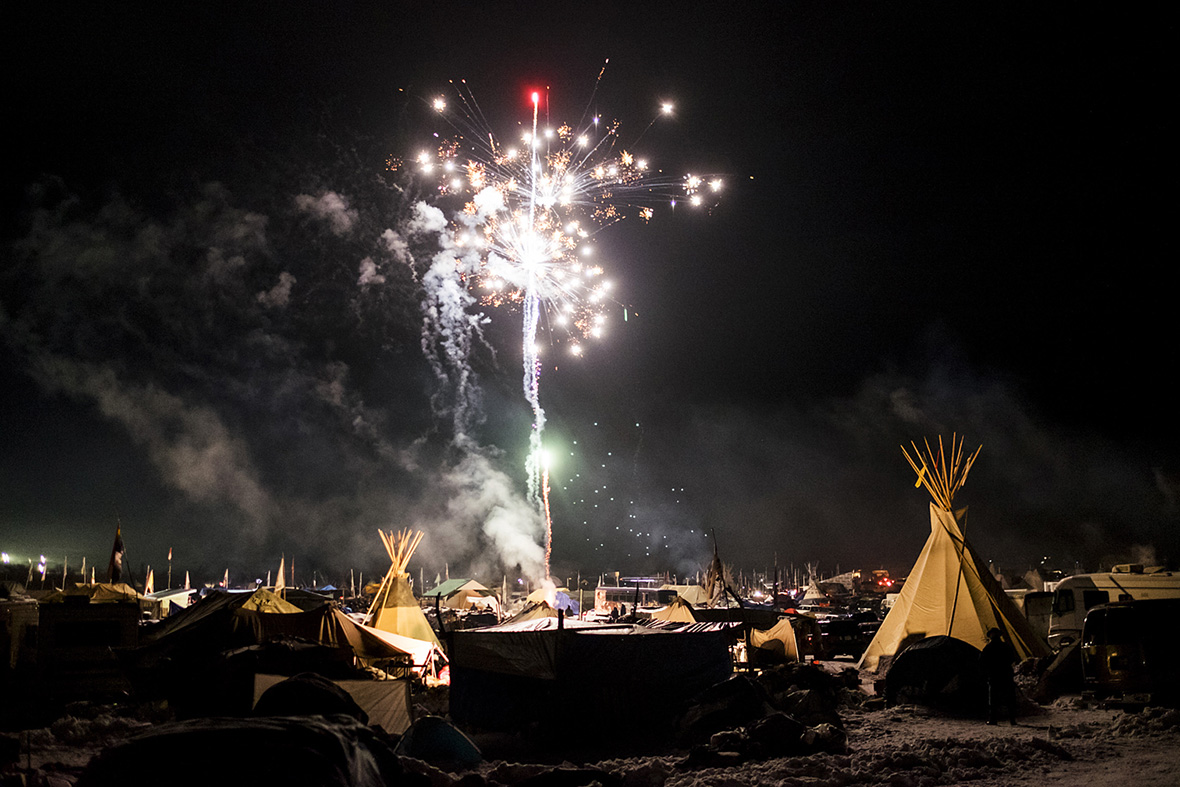
Christian Hansen

Christian Hansen

Christian Hansen

Christian Hansen
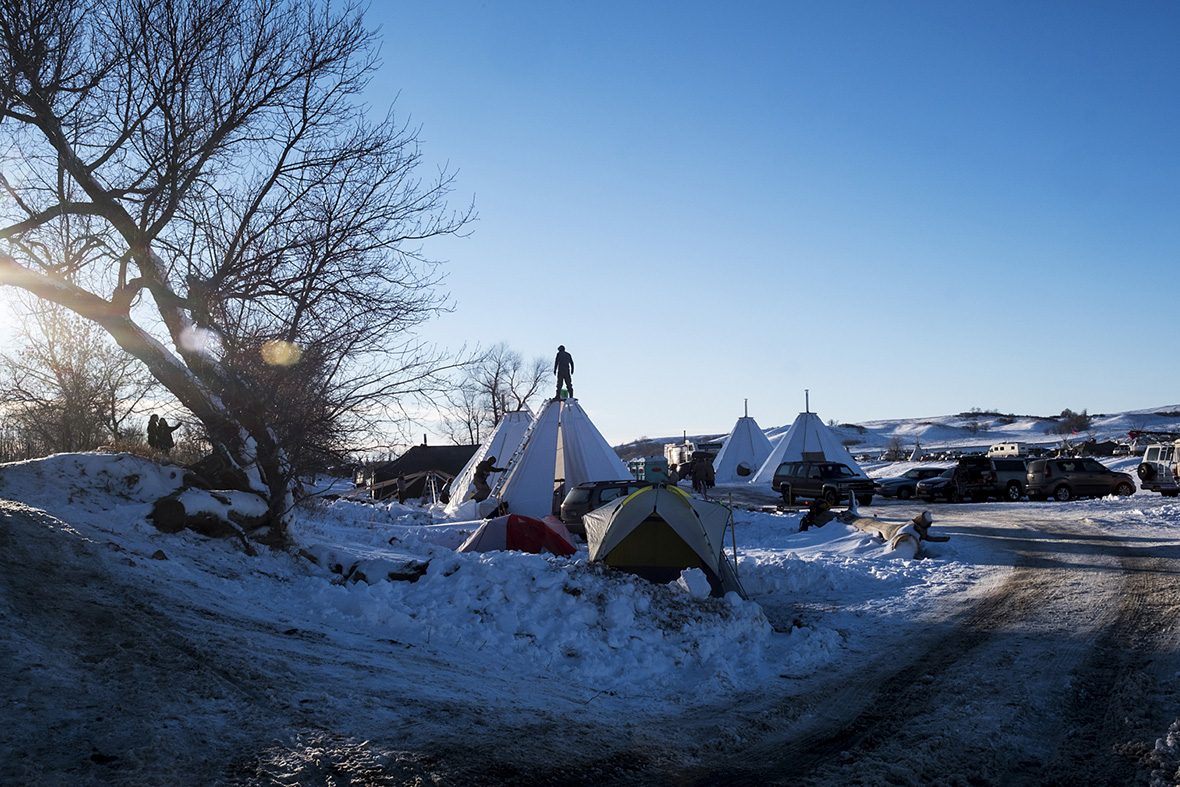
Christian Hansen
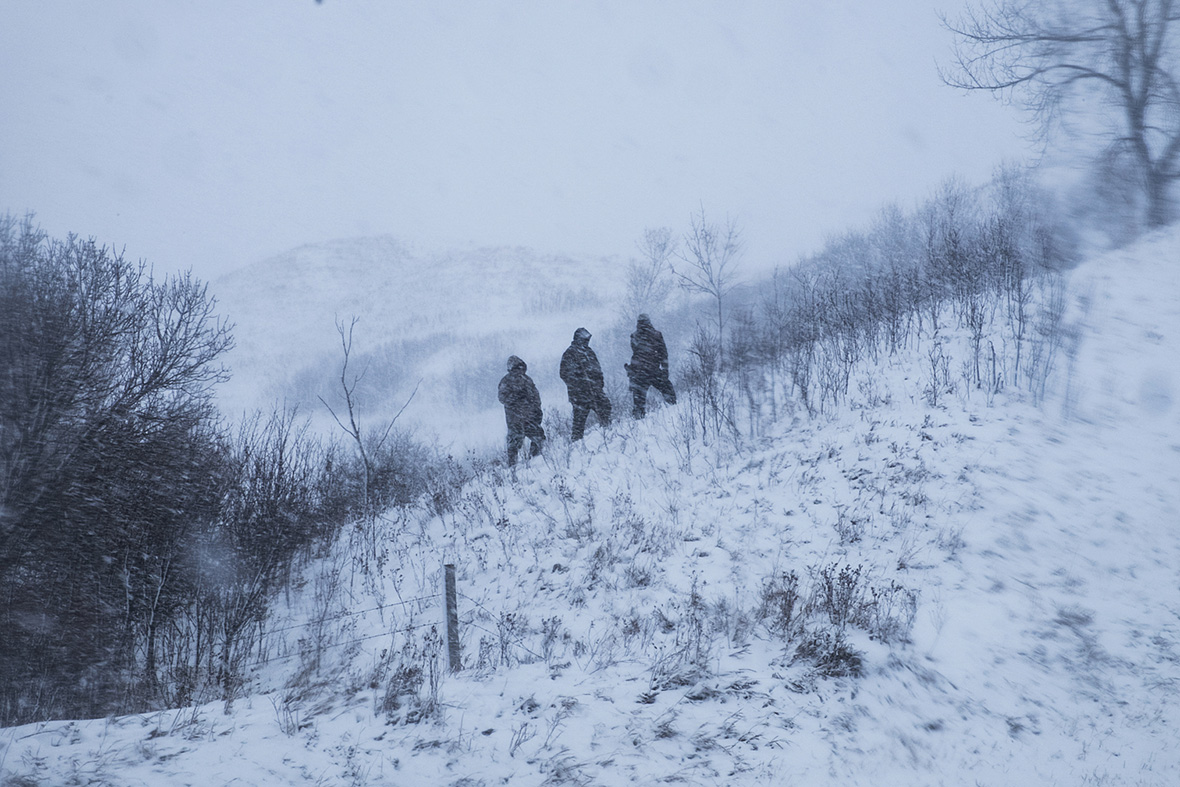
Christian Hansen

Christian Hansen

Christian Hansen
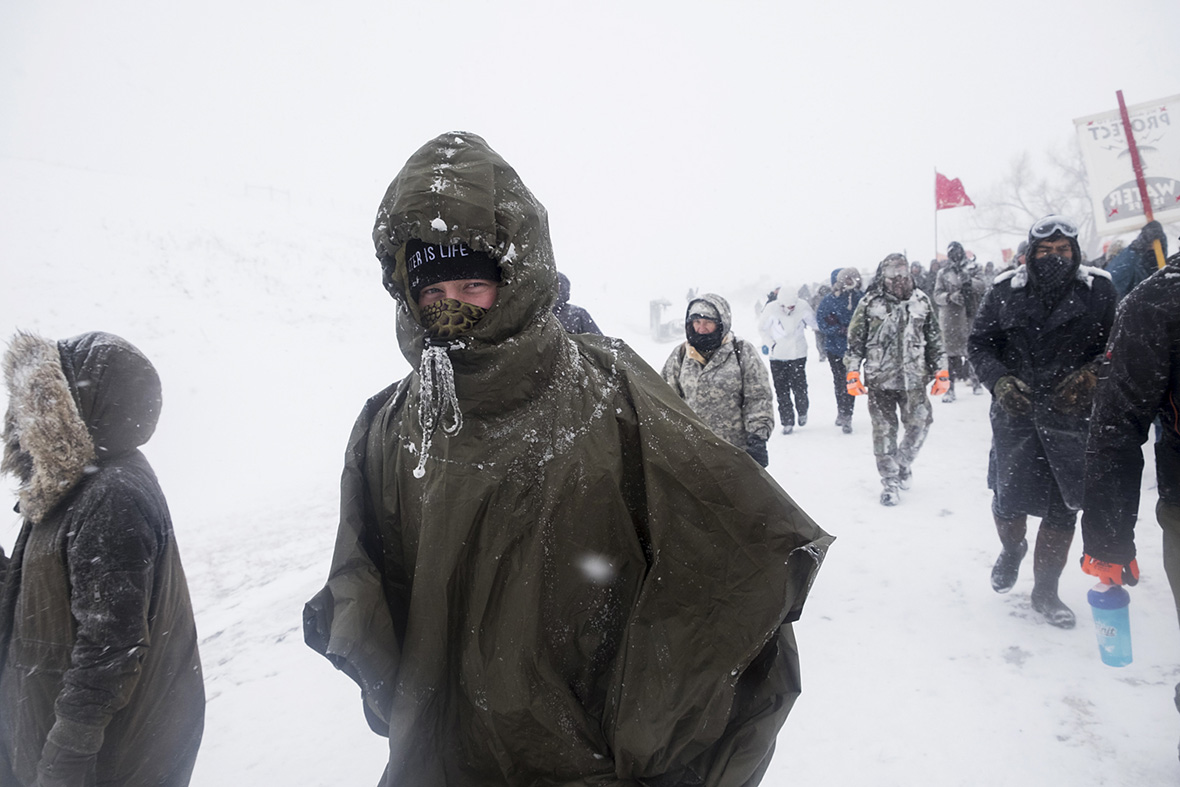
Christian Hansen
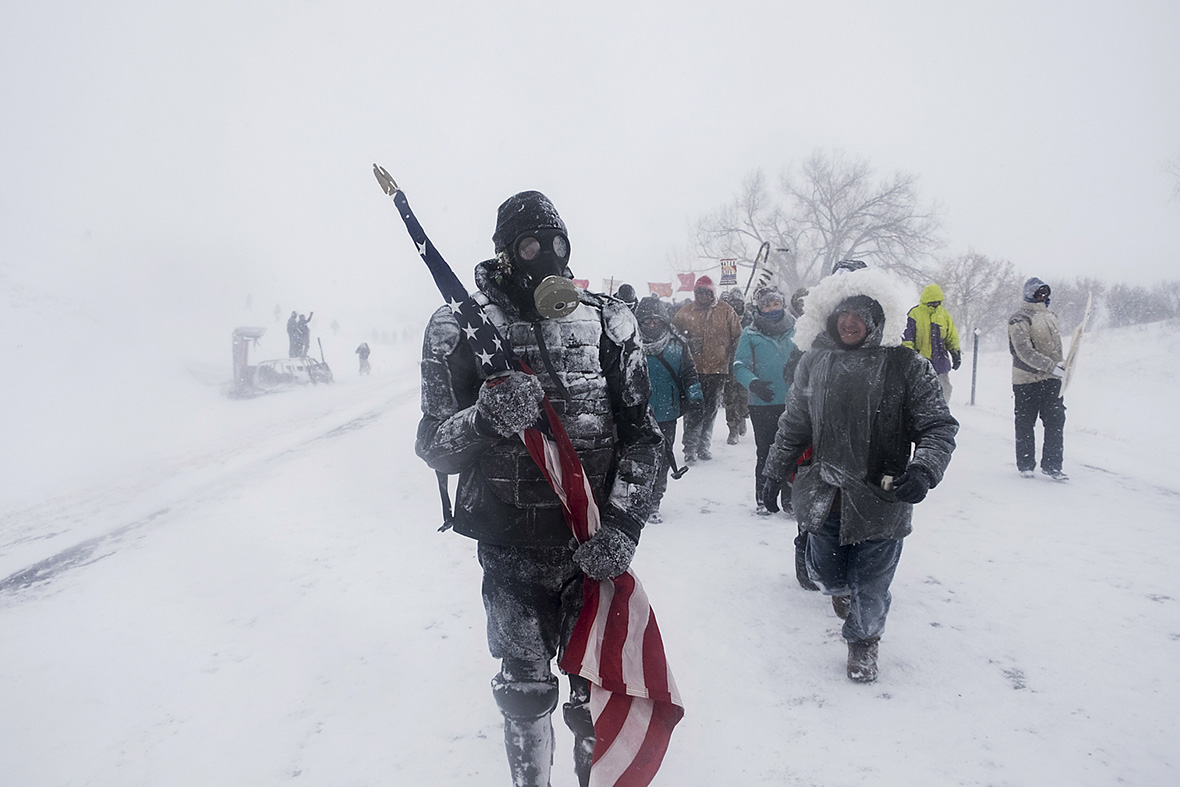
Christian Hansen

Christian Hansen
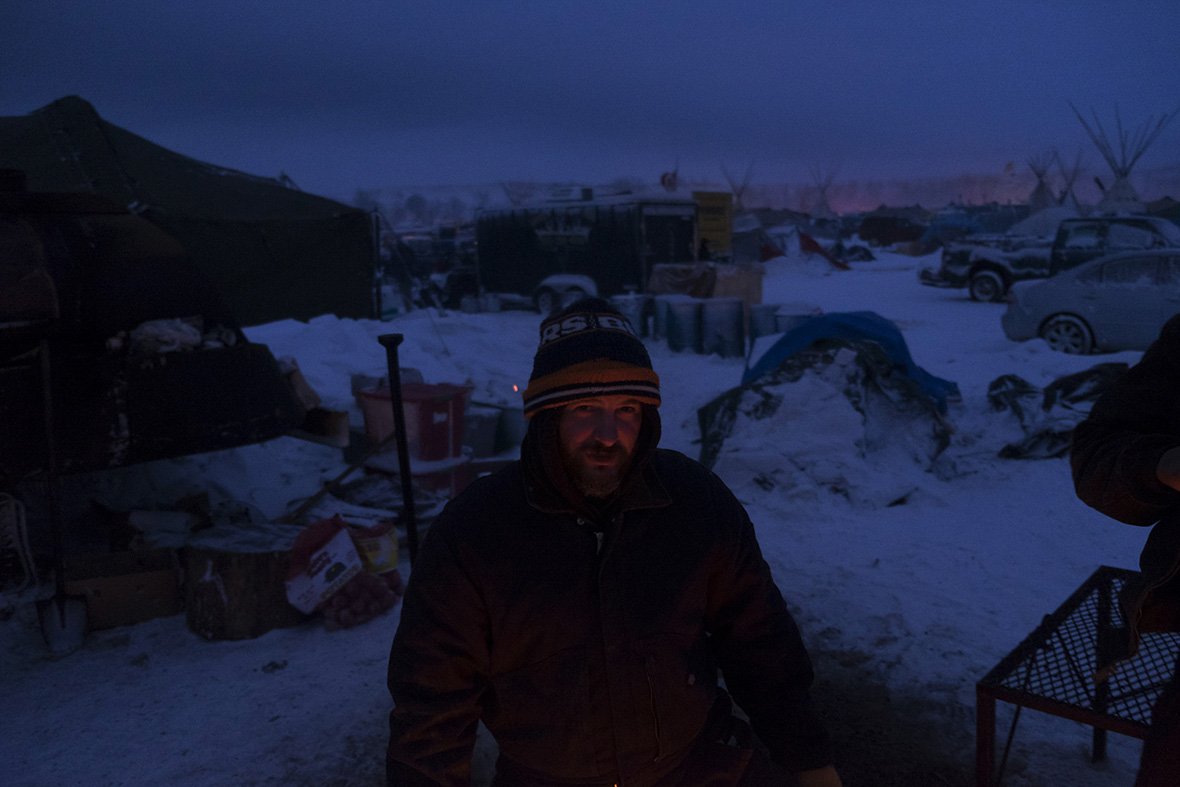
Christian Hansen

Christian Hansen

Christian Hansen

Christian Hansen

Christian Hansen
Update, Dec. 13, 2016: This photo essay has been updated to remove a photo. We published the photo without proper context and have decided to remove it after learning more about the possible context.